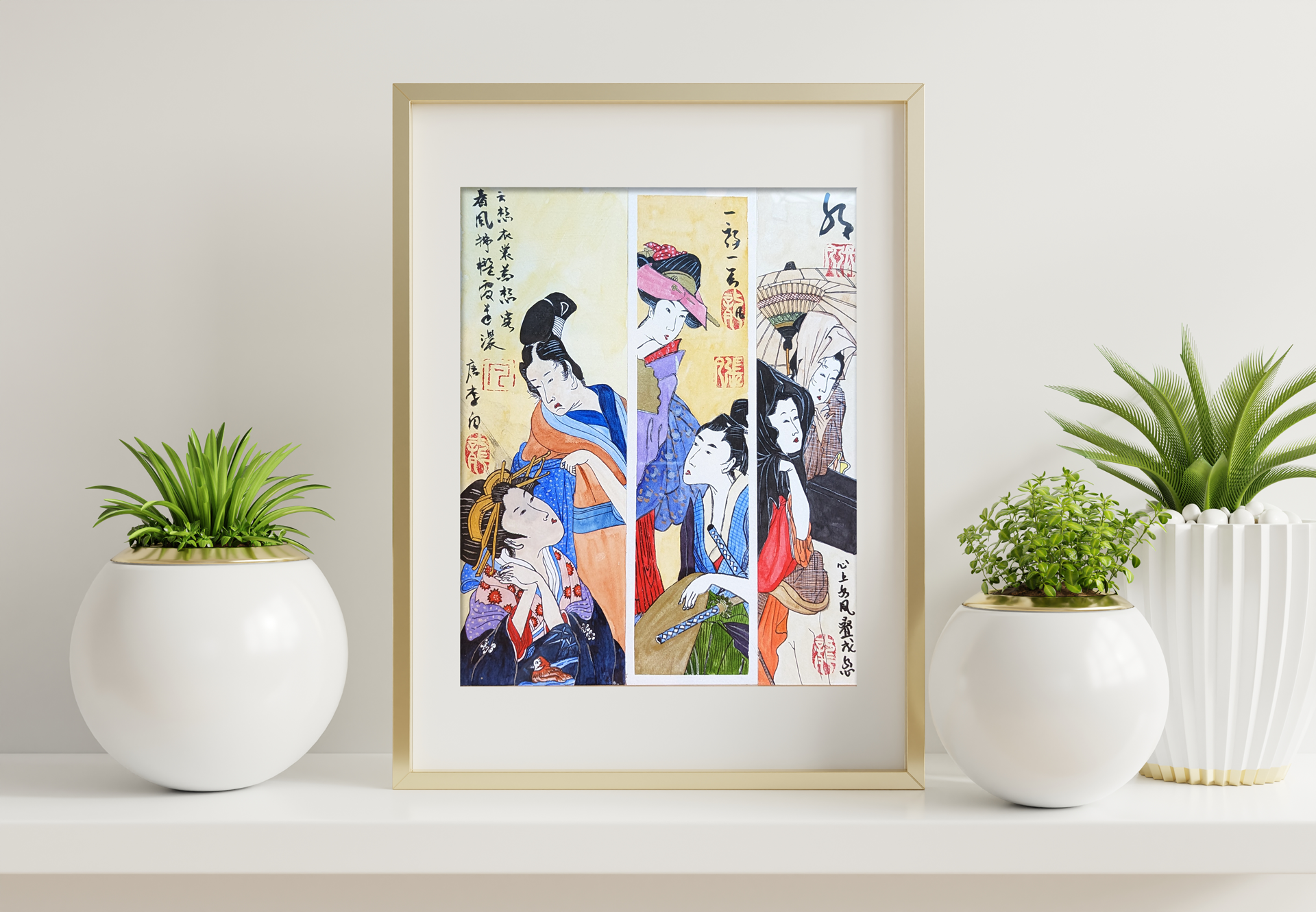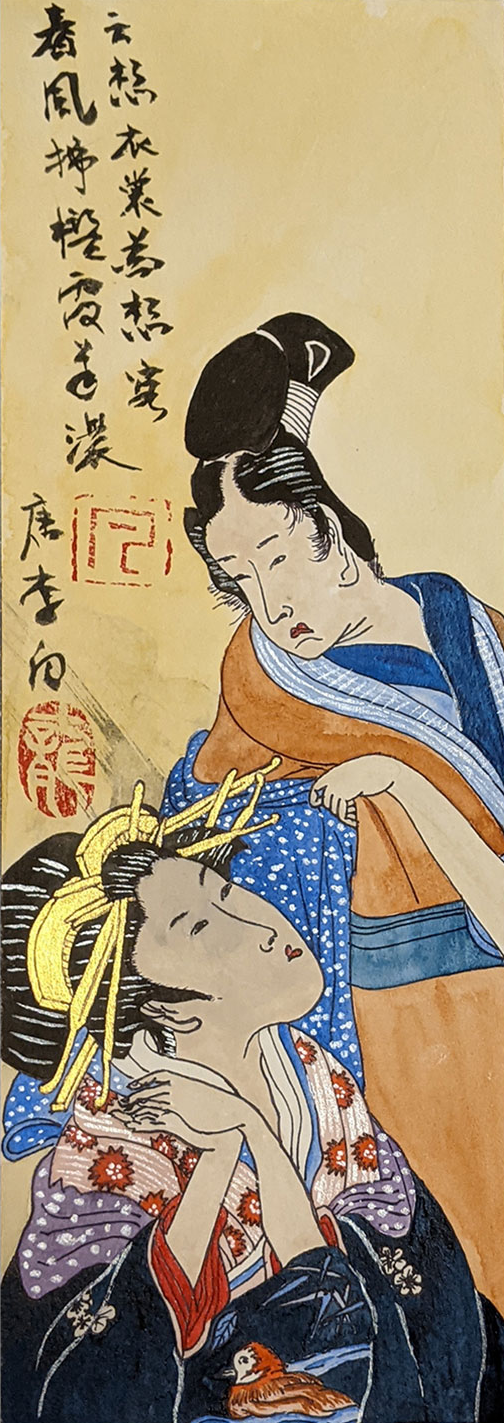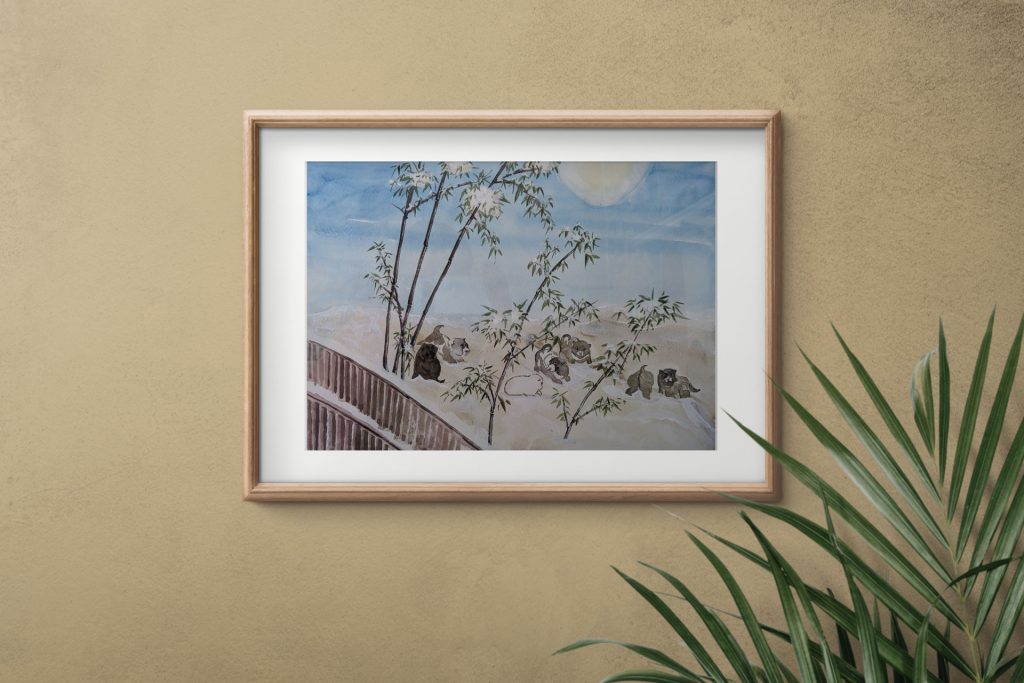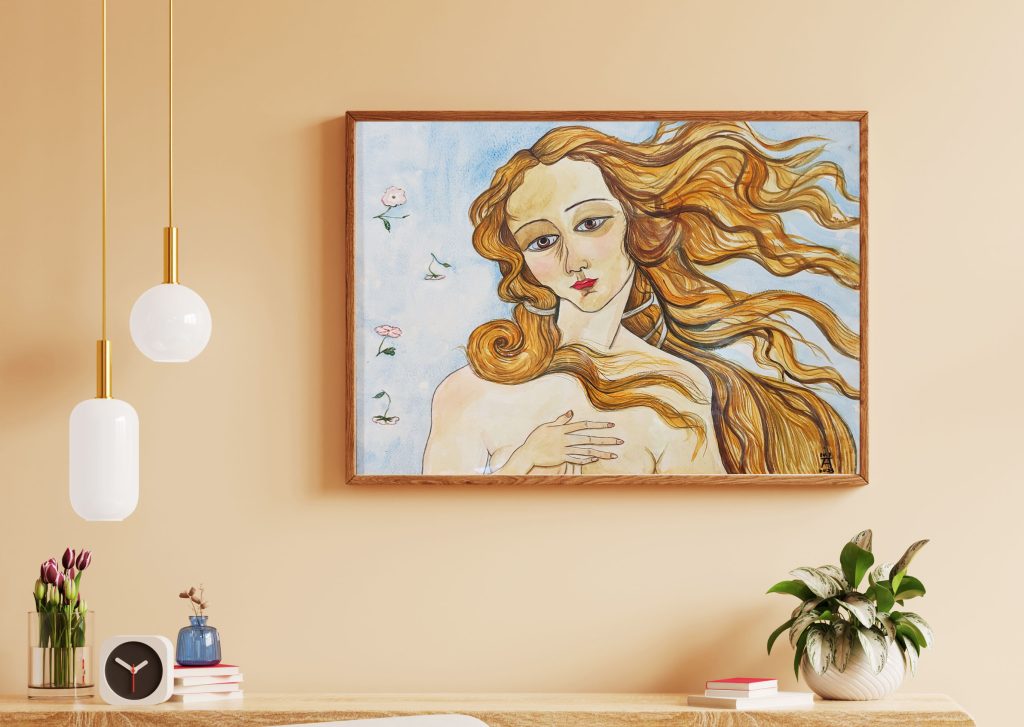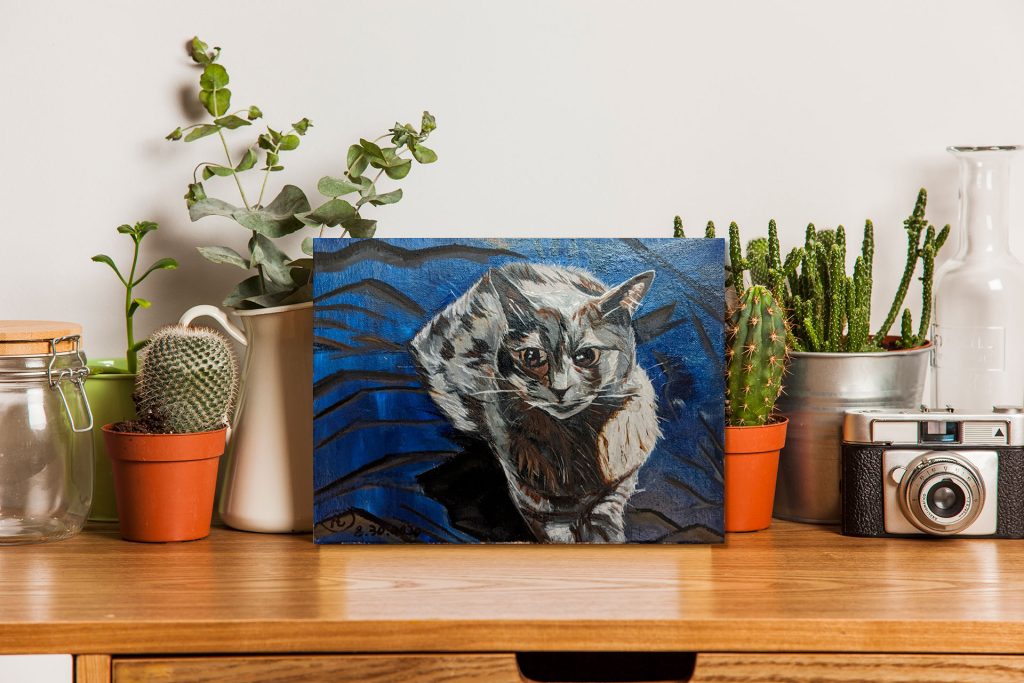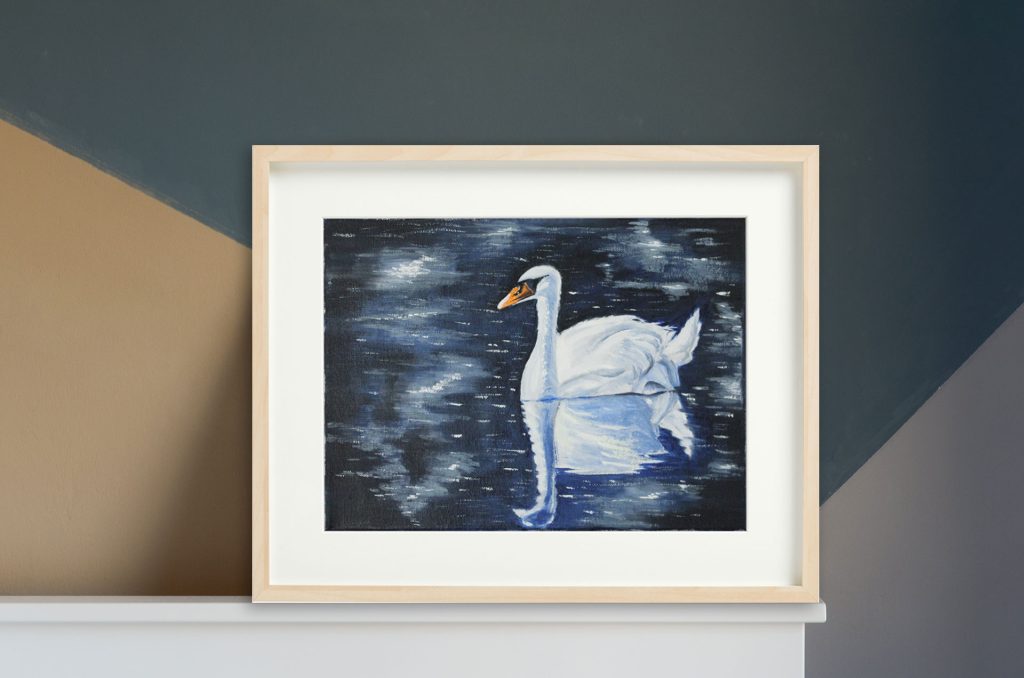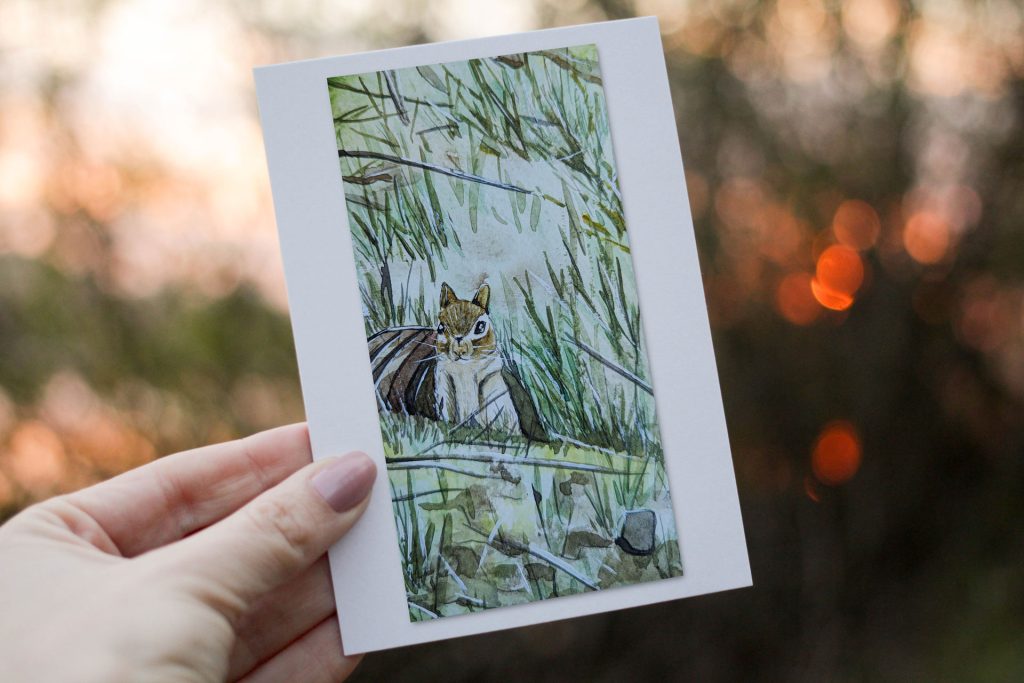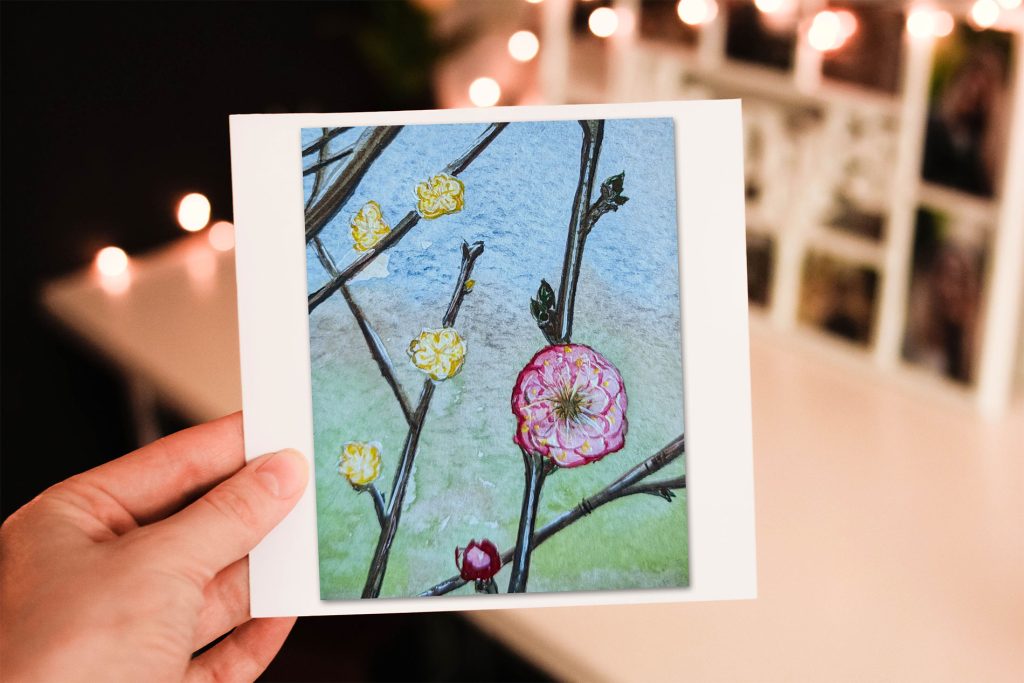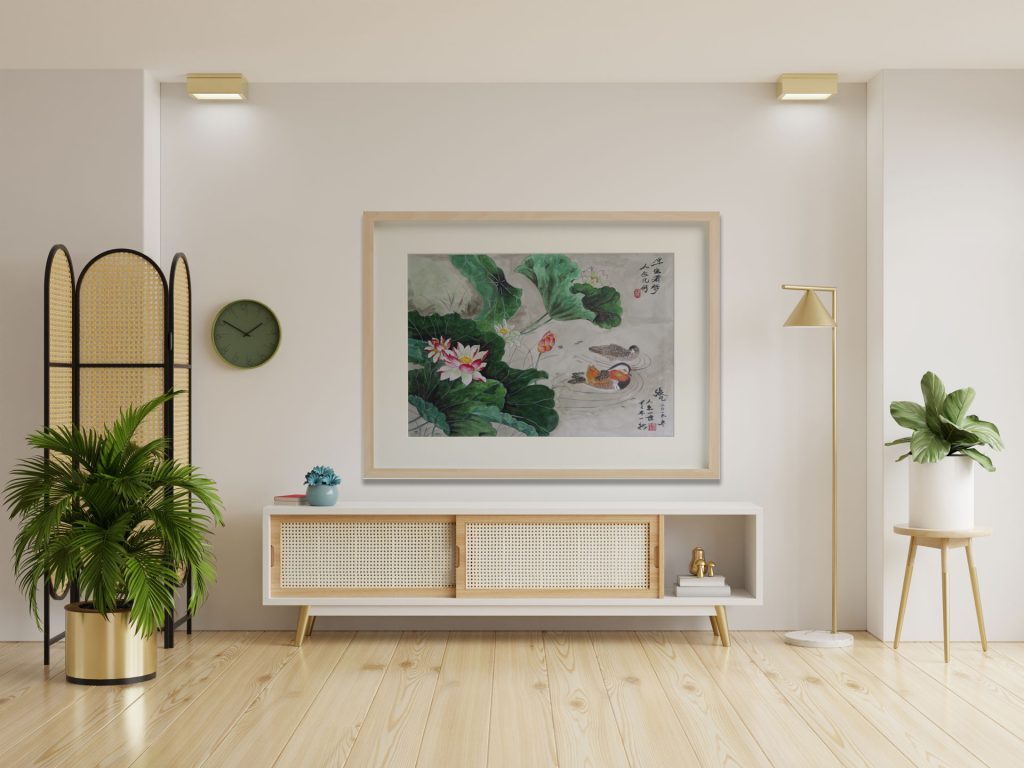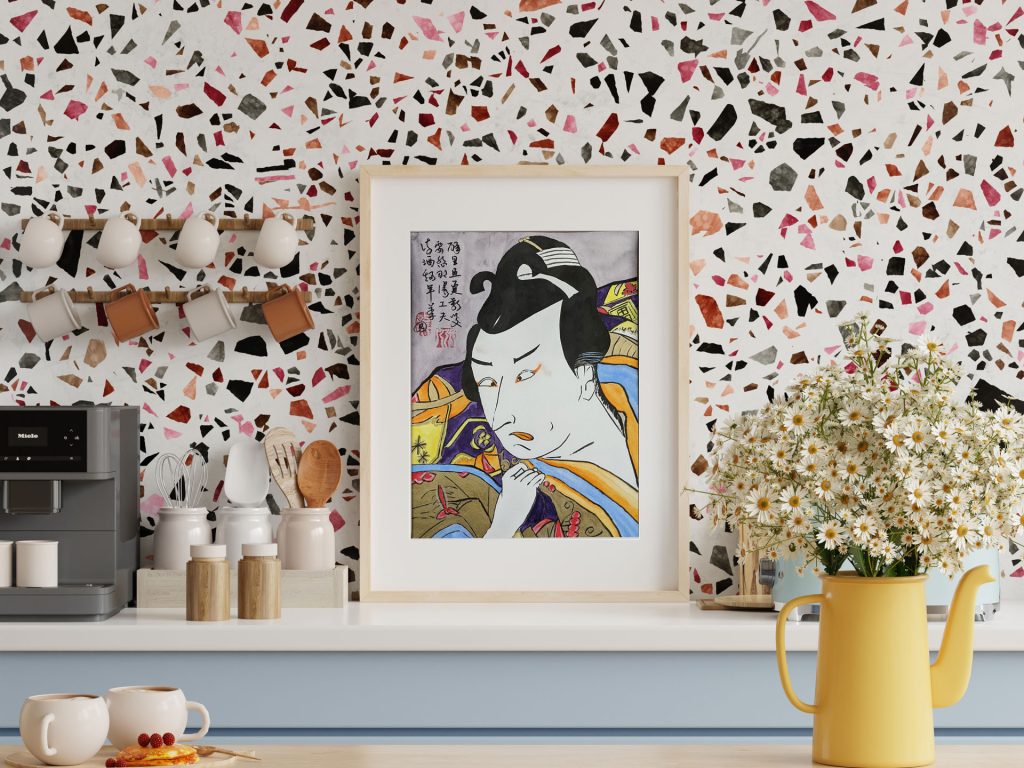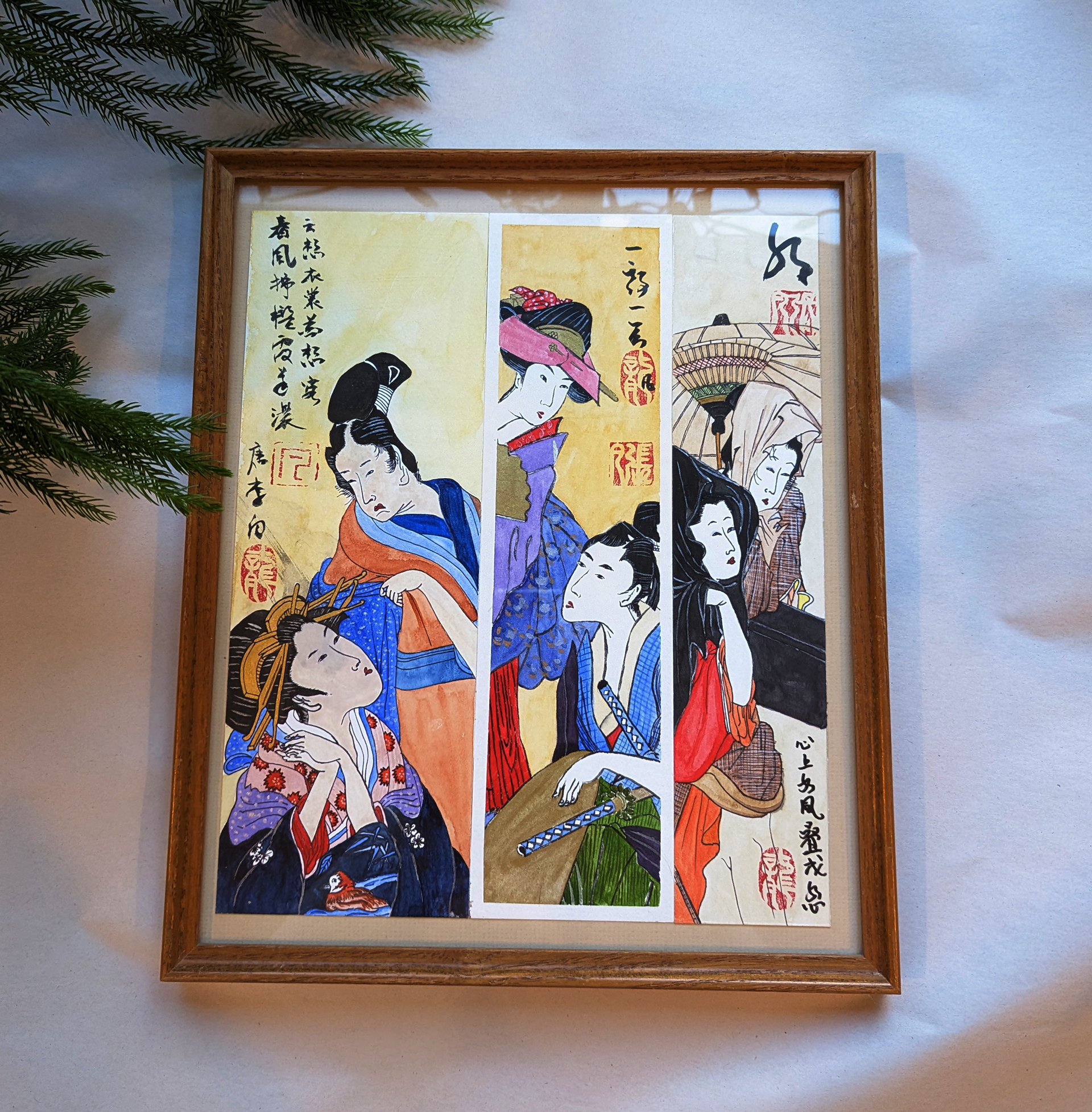
1. 云想衣裳花想容
“yun xiang yishang hua xiang rong, chunfeng fulan luhuanong”
“云想衣裳花想容”是诗人设想云朵想与杨贵妃的衣裳媲美,花儿想与杨贵妃的容貌比妍,这是极言杨氏的衣饰和容貌之美。而“想”用得颇为巧妙而富有张力,这是用拟人、夸张和想像等艺术表现手法侧面摹写出杨贵妃的亮丽容颜和高贵身份。此外,这句诗互文见义,用笔灵动而经济。见到云就联想到她华艳的衣裳,见到花就联想到她艳丽的容貌;春风吹拂栏杆,露珠润泽花色更浓。如此天姿国色,不是群玉山头所见的飘飘仙子,就是瑶台殿前月光照耀下的神女。
“云想衣裳花想容”是李白所作《清平调》三首里的第一首的首句。诗人看见天边的云彩就不由得想起(杨贵妃的)衣裳,看见娇嫩的花儿就不由得想起(杨贵妃的)容颜,这是极言杨氏的衣饰和容貌之美。间接写出了大唐盛世的美。(source: baidu)
清平调
李白
云想衣裳花想容,春风拂槛露华浓。
若非群玉山头见,会向瑶台月下逢。
2. Ukiyo-e and Ichi-go ichi-e 一期一会

I saw this painting on the internet and fall in love with it immediately. This is one of work from Kitagawa Utamaro (喜多川歌麿), again my favorite Japanese artist. I can’t find much information behind the painting, or any story Utamaro wanted to tell. It was a shame.
I painted this in watercolor. And wrote Ichi-go ichi-e (Japanese: 一期一会, pronounced [it͡ɕi.ɡo it͡ɕi.e], lit. “one time, one meeting”)on it. I knew this may be not the message artist wanted to describe. But I think it is fine, this is my recreation anyway. I just pure love the painting and the phase.
Ichi-go ichi-e is a Japanese idiom (yojijukugo) that describes a cultural concept of treasuring the unrepeatable nature of a moment. The term has been translated as “for this time only”, and “once in a lifetime”. The term reminds people to cherish any gathering that they may take part in, citing the fact that any moment in life cannot be repeated; even when the same group of people get together in the same place again, a particular gathering will never be replicated, and thus each moment is always a once-in-a-lifetime experience. The concept is most commonly associated with Japanese tea ceremonies, especially tea masters Sen no Rikyū and Ii Naosuke.
In western culture, we say to savor the moment, notice what’s going right, and appreciate it. This isn’t the same as pretending you’re happy when you’re not; it’s more about noticing the things that lead to greater happiness and reduced stress. I think it is a similar concept.
History – Sen no Rikyu
The term can be traced back to the 16th century to an expression by tea master Sen no Rikyū: “one chance in a lifetime” (一期に一度, ichigo ni ichido). Rikyū’s apprentice Yamanoue Sōji instructs in Yamanoue Sōji Ki to give respect to your host “as though it were a meeting that could occur only once in the lifetime” (一期に一度の会のように, ichigo ni ichido no e no yō ni). Ichigo (一期) is a Buddhist term meaning “from one’s birth to death”, i.e. one’s lifetime.
Later, in the mid-19th century, Ii Naosuke, Tairō (chief administrator) of the Tokugawa shogunate, elaborated on the concept in Chanoyu Ichie Shū:
Great attention should be given to a tea gathering, which we can speak of as “one time, one meeting” (ichigo, ichie). Even though the host and guests may see each other often socially, one day’s gathering can never be repeated exactly. Viewed this way, the meeting is indeed a once-in-a-lifetime occasion. The host, accordingly, must in true sincerity take the greatest care with every aspect of the gathering and devote himself entirely to ensuring that nothing is rough. The guests, for their part, must understand that the gathering cannot occur again and, appreciating how the host has flawlessly planned it, must also participate with true sincerity. This is what is meant by “one time, one meeting.”
This passage established the yojijukugo (four-letter idiomatic) form ichi-go ichi-e (一期一会) known today.
3. 心上秋风叠成愁
The autumn wind blows through my heart and turns into sadness


